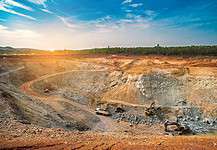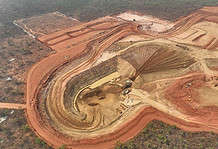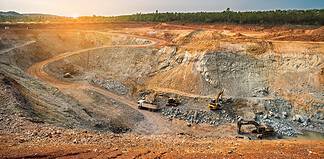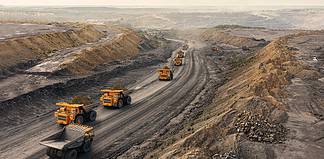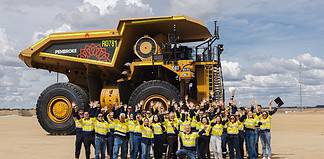THE Kenyan Government has revoked all mining licences issued in the months before and after the country’s March elections and announced it would increase royalties paid by companies undertaking mining operations.
“I have today revoked all licences (Prospecting, Exploration and Mining), issued between 14 January, 2013 and 15 May, 2013,” Mining minister Najib Balala said in early August.
The decision was made following a number of complaints about the issuing process.
Following his election, President Uhuru Kenyatta set up a mining ministry to overhaul the country’s mining regulations and broaden its economy.
“Though Kenya is not generally known as a mining investment destination, recent developments have proven that the country actually holds a significant potential for mineral development, and is largely unexplored,” the Kenya Chamber of Mines (KCM) stated.
“Kenya currently produces soda ash, fluorspar, cement, coloured gemstones… and gold among other minerals, the two later mainly from artisan mining activity.
“The Kenya Government, in hand with KCM, is currently putting in place a Mining Policy and revising its outdated Mining Act in order to encourage development of the mineral industry in the country.”
The government also announced that it had appointed a taskforce to review all licences issued since January 2003.
Mr Balala said the taskforce’s purpose was to assess the validity of licenses, draft recommendations and provide a report to enable necessary action within 60 days.
Kicking off the reforms with the revoking of 43 sets of licences, the government also announced a hefty set of new drilling charges. These charges had previously been set at 800 Kenyan Shillings (KES) per metre (about $10) but would now operate on a sliding scale based on the depth of drilling, ranging from KES8000/m (about $100) for the first 50m of drilling to KES15,000/m (about $190) for the 50m of drilling deeper than 350m, with rates for below 400m to be negotiated.
The new royalty system would be charged at 10 per cent of gross sales values for rare earth elements and radioactive minerals, niobium, titanium and zircon; 12 per cent for diamonds; 8 per cent for coal, iron ore, manganese, nickel and bauxite; and 5 per cent for gold, silver, platinum and gemstones.
Licence fees would also been increased, with a prospecting licence now costing US$500 for foreigners and KES20,000 for locals; an exclusive prospecting licence/special licence US$5000 for foreigners and KES50,000 for locals; and a mining licence US$50,000 for foreigners and KES500,000 for locals.
Prospectors would be required to pay an annual licence fee and developers and producers would need to pay an additional annual ground rental fee.
According to the KCM, more than 300 local and foreign entities are now either prospecting for minerals or producing on a small scale within the country – 10 times more than three decades ago.
“I have in the recent past witnessed several roadside announcements by mining companies, regarding discovery of minerals in various parts of the country.
This has created unnecessary expectations from members of the public,” Mr Balala said.
“I hereby wish to inform all mining companies that prior to making public any results concerning their analyses, projections or estimates, they should provide such information to my office for approval at least 21 days before the date of the intended publication.
“No company is allowed to go to the media to announce any results as this creates unnecessary and unwanted expectations.”
Mr Balala said that all of the changes were aimed at ensuring the ministry would create a level playing field in the country’s mining industry.
Advertisement


